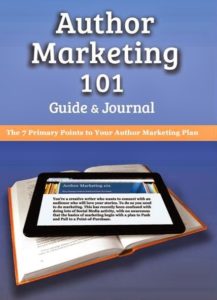
Marketing is a big freaking deal when you’re trying to be a professional author. Which is unfortunate, because it feels like an exercise in futility. “Focus on the marketing things you like to do!” is a common nugget of wisdom from the pros. But what if you don’t like any of it? Then it sucks to be you!
Okay, there’s a teensy bit of it I liked, which I’ll detail later.
For my latest release RECKONING in July, I decided to put together a no-kidding-for-real marketing plan, detailed below, along with my assessment of its effectiveness. Results may vary from author to author, but in case you plan on trying your hand at publishing a book and your publishing company (if you have one) offers little to no marketing backup – which is unfortunately typical – then at least you can use my toiling as a place to start!
The key metrics are: 1) website traffic; 3) newsletter subscribers; 3) books sold. The first two in theory should directly lead to the last.
- Schedule daily Facebook posts once a week – RESULTS: minorly effective; most posts had a fairly low # reached rate, though the number of people following my feed did steadily increase over time, so a slight positive net effect
- Write a blog every two weeks (STRETCH: once a week) – RESULTS: ineffective; writing posts is important to keep your website from growing stale, but I had very few comments on any of my posts, making interactions with my potential audience non-existent
- Spend 10 minutes each day liking/responding to other author’s Facebook posts; RESULTS: ineffective; okay, this is my fault because I didn’t do much of this; I’m just not a social media person, and perusing Facebook feels more like a chore than a way to keep up with friends
- Compile a list of authors for blurbs/reviews – RESULTS: N/A; I didn’t end up doing this due to the intensive logistics required, though I might try it for my next release
- Send author requests for blurbs/reviews
- Offer to send authors all three books
- Send ARCs to those who respond; follow up with those who don’t respond
- Have some suggested blurbs ready to make it super-easy for authors short on time
- Compile list of romance book review blogs, ask them for reviews – RESULTS: effective; though I didn’t get reviews in any major blogs, the ones I did get were good and resulted in some traffic to my website
- Update website to focus on my story, not my books – RESULTS: ineffective; I thought about doing this, but decided against it; this is more of a strategy for someone releasing a non-fiction book, where an author’s personal story or expertise is relevant to the book
- Focus on what makes me unique/newsworthy/worth following, and what I can do for my readers
- Books should be secondary focus (even though primary goal is to sell books)
- Find out what a pre-sales list is, try to make one myself – RESULTS: N/A; didn’t need to do this
- Pre-sales list is a list of places that will pre-sell your book, like Amazon and Google
- Already have pre-sales going on via my publisher, so don’t need this
- Create a sell sheet – REVIEW: N/A; didn’t need to do this
- Used to convince bookstores to sell your books
- Not necessary for me
- Create an online media kit – RESULTS: effective; the online press kit was helpful to send to possible reviewers and anyone else who asked for more information, though the press release was unnecessary
- A PDF file or webpage (most ppl prefer PDF, cuz it’s easier to copy from) that bloggers or other media people can use to quickly write a story or review about your book
- Keep it simple; ppl want to easily skim it and find the info they need
- Include in the kit:
- A press release, usually the one you write for the book’s launch.
- Author bio, including previous publications and qualifications to write the book. Include author’s platform information. (keep it very short)
- Author photo, and it’s smart to include high-resolution files for print and low-resolution for online use.
- Book photo, with the same resolutions as the author photo.
- Any awards the book or series has won
- Testimonials
- Sample interview questions and Q&A
- Excerpts from the book and sample chapters
- Links to everything and contact info
- Here’s a good example: <https://michaelhyatt.com/platform/media
- E-mail press release to media and bloggers – RESULTS: ineffective; even though I subscribed to HARO (Help A Reporter Out website), it became clear over a few months that nobody was looking for a story like my press release; this could be useful for non-fiction books where an author wants to advertise the fact they’re an expert at something
- Create some memes (put name & website on them) – RESULTS: effective; good for sending to bloggers who reviewed my book and posting on my website
- (maybe) Create a book trailer – RESULTS: N/A; didn’t end up doing this, but worth a try for my next release
- Come up with special promotion offers ~1 month before book release – RESULTS: mostly ineffective; offering Amazon gift cards to people who signed up for my newsletter or commented on a post had a negligible effect on book sales; probably better than nothing, but mostly a waste of money as people would sign up for the gift card, then unsubscribe shortly after; need less costly promo offers next time, or none at all
- Day-of live Facebook celebration – RESULTS: ineffective; gave away books to my friends, ended up talking to myself for three hours while no one watched; either don’t do again for next release, or keep it to an hour with a specific structure/script that I can edit and use later
- Set up a blog tour – RESULTS: effective; writing guest blogs was probably the best tactic in my strategic toolkit, as I usually had a (small) surge of people who signed up for my newsletter after my guest blogs were published
